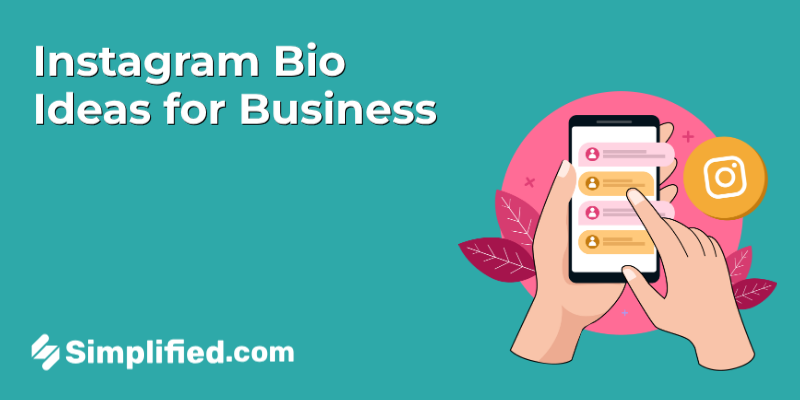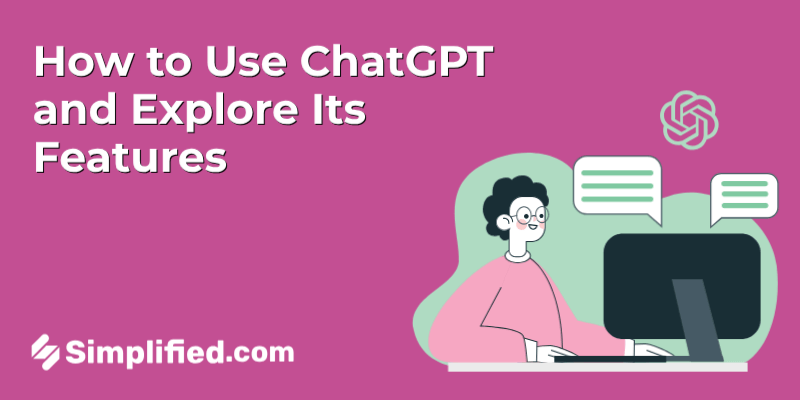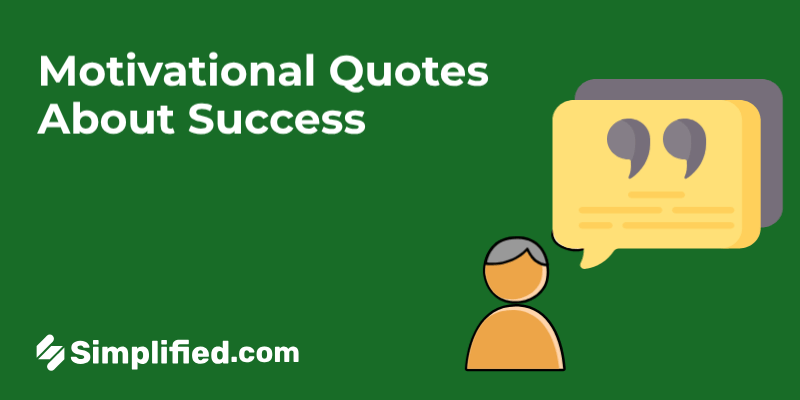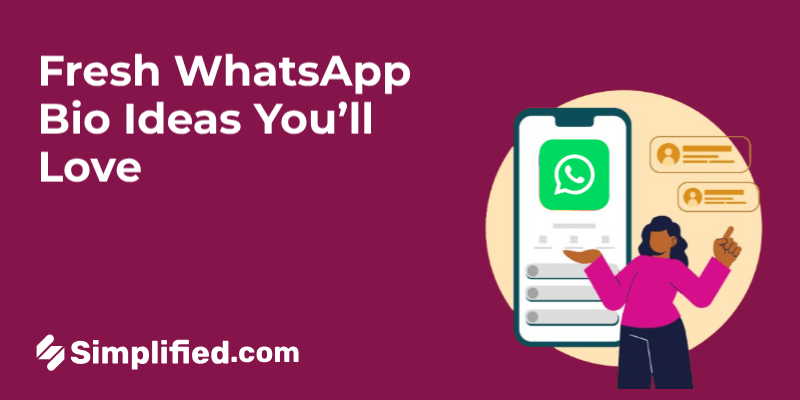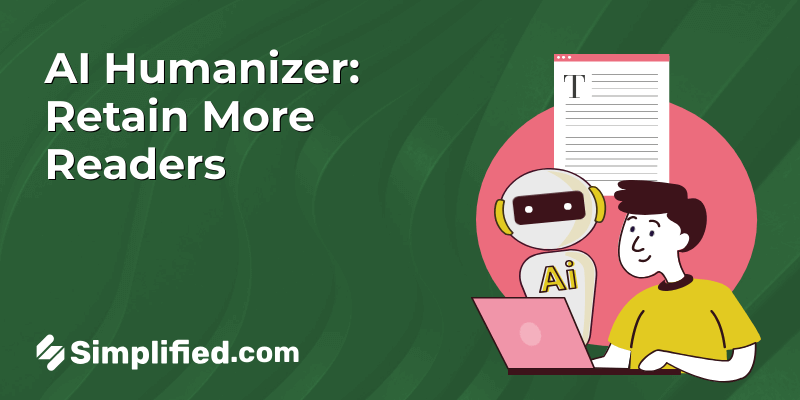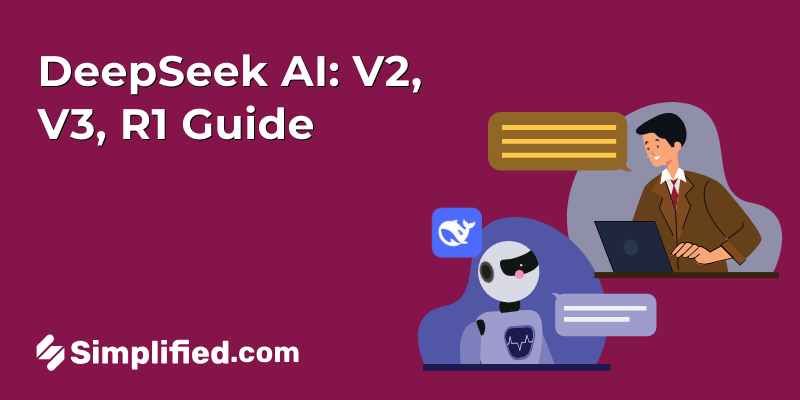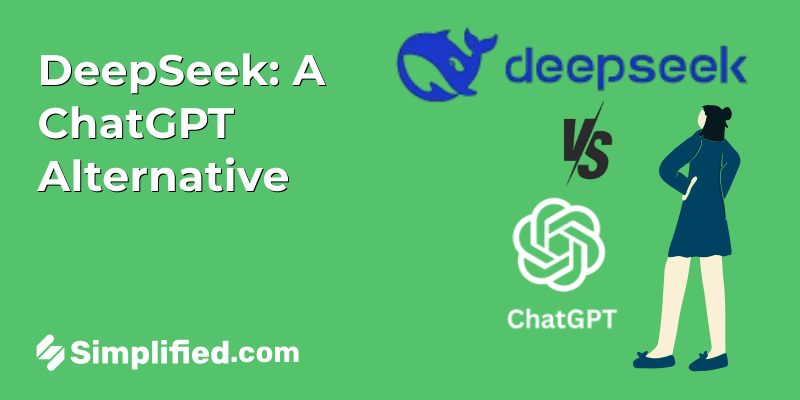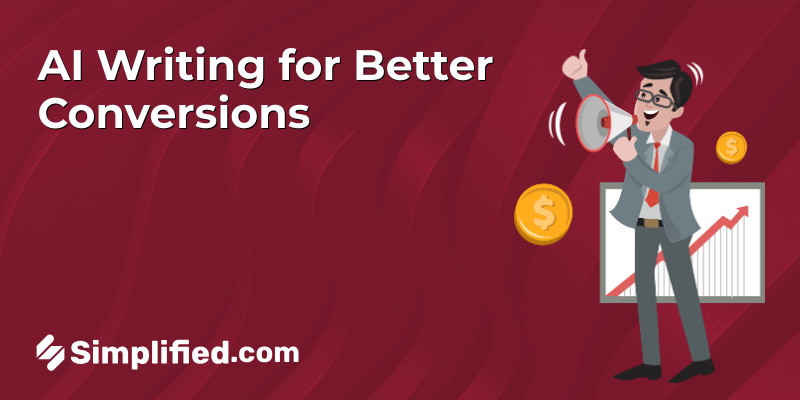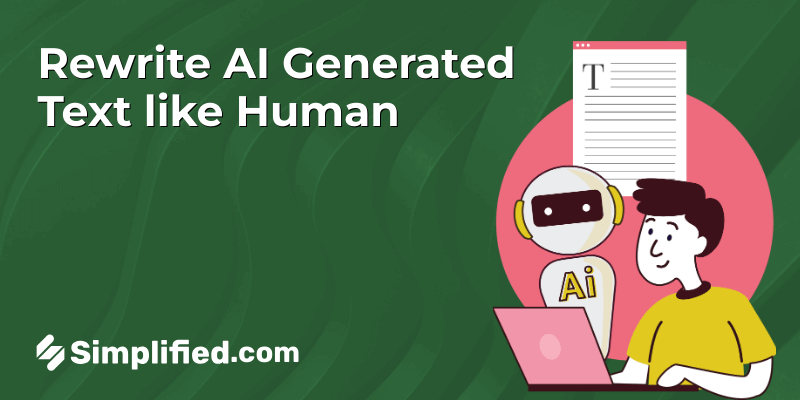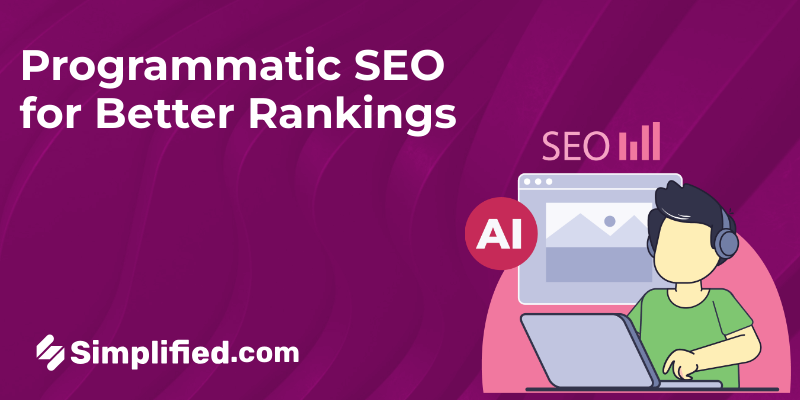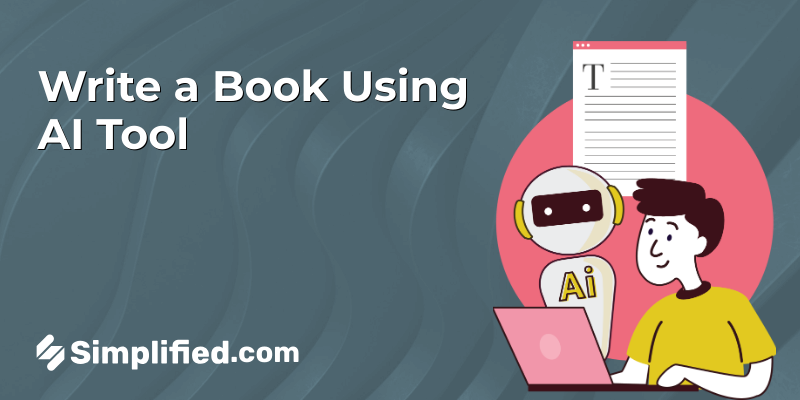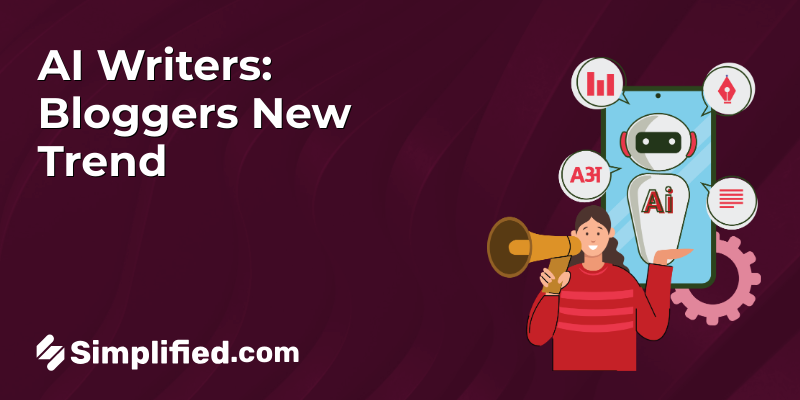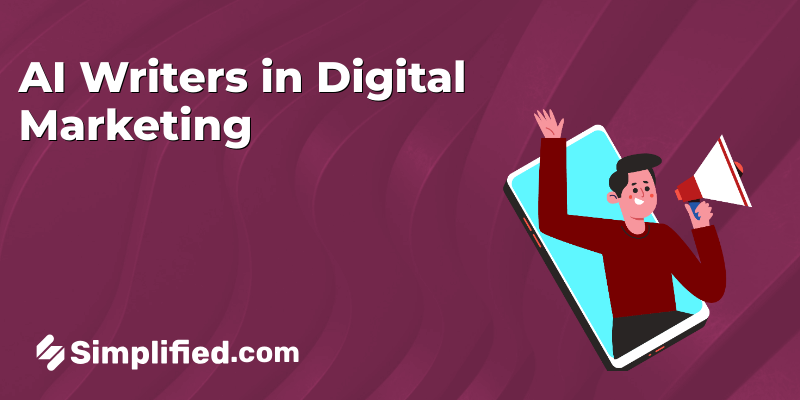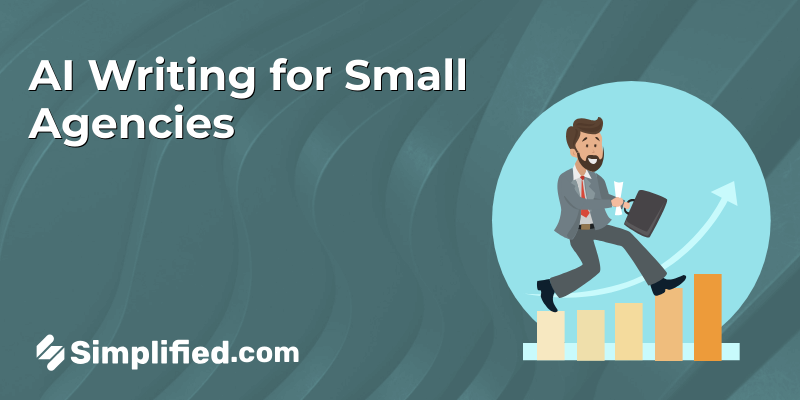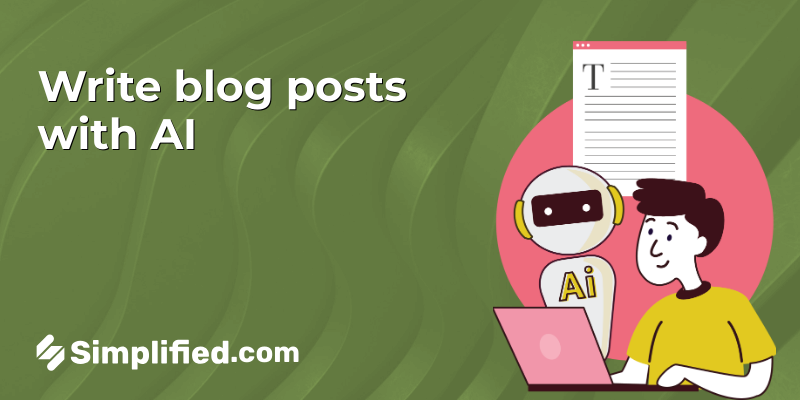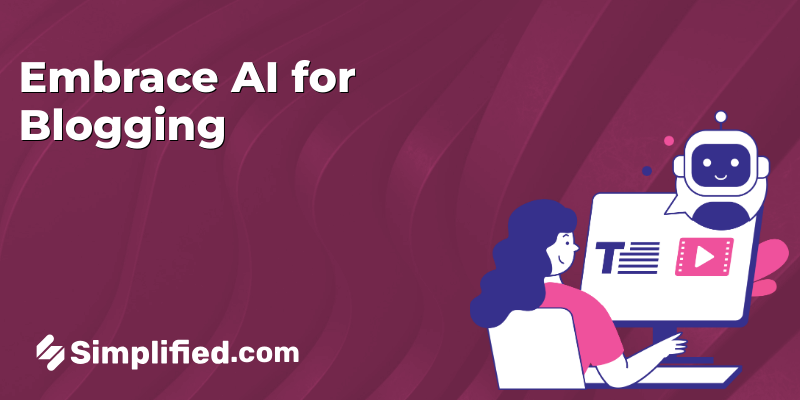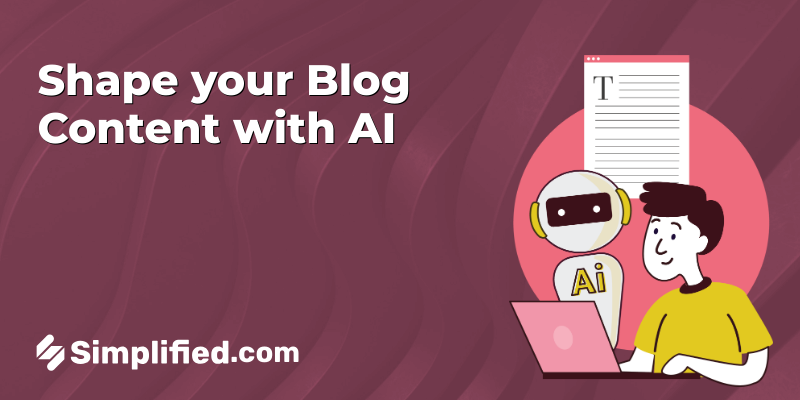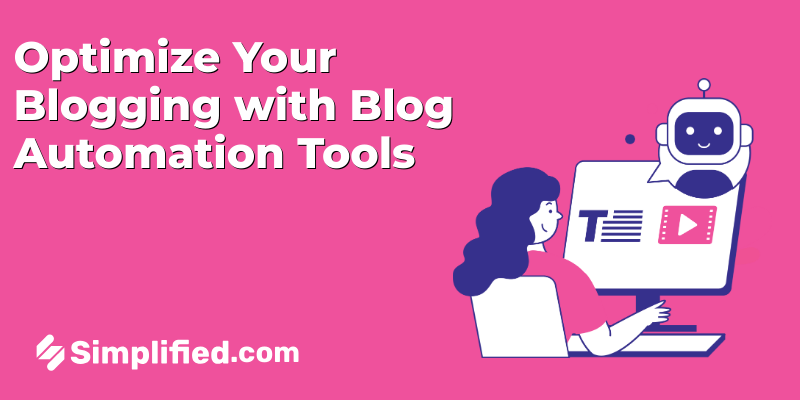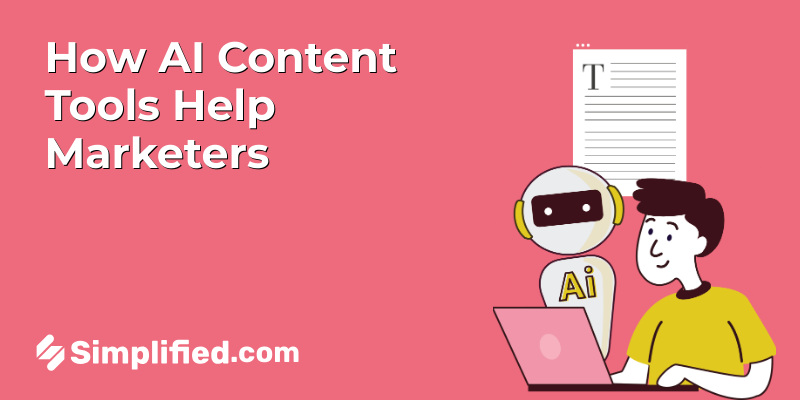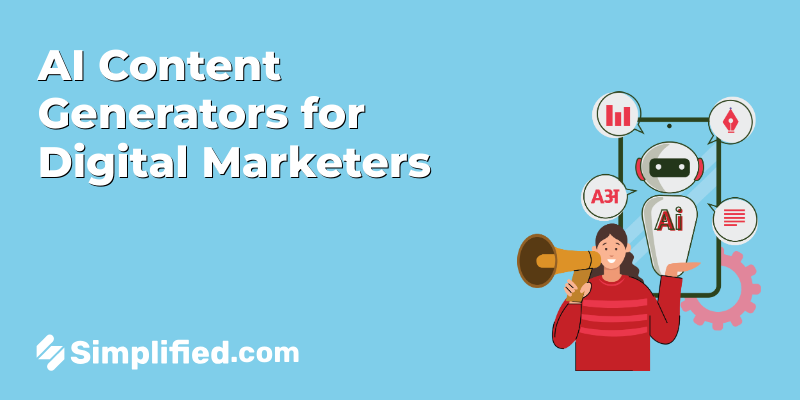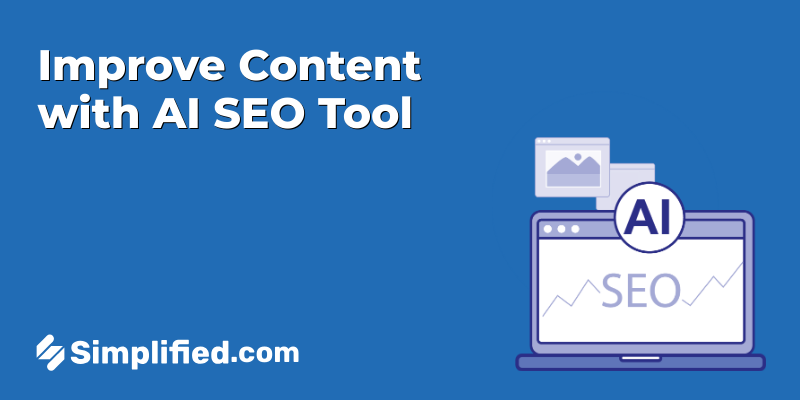
The changing business environment relies on modern technologies for businesses to succeed. In particular, different departments use sales enablement to improve their sales performance.
Especially the advancements in Machine Learning and Natural Language Processing have changed the tides for businesses, and Artificial Intelligence (AI) is catching up with the pace.
Statista suggests that its market share will hit US$305.90 billion in 2024. This is still expected to boost at a CAGR of 15.83% between 2024 and 2030, totaling a market size of USD 738.8 billion by the end of 2030.
How AI Is Transforming Content Creation
AI has emerged as a game-changer in the content creation field. Besides marketing, it is redefining the sales enablement landscape by providing tools that create more personalized, relevant, and engaging content. It aids in analyzing customer data, predicting trends, and generating content that resonates with the target audience.
Such advancements also make way for tools designed to create highly personalized, relevant, and engaging content, a crucial aspect of modern sales strategies. For instance, sophisticated quoting tools for Salesforce and other CRM systems enable sales representatives to rapidly generate tailored proposals. This increases the efficiency and effectiveness of their sales pitches.
With AI for content creation, marketing personnel can craft content that resonates deeply with the target audience. Adopting this targeted approach with AI-driven custom content creation ensures that each piece of content is strategically aligned with customer needs and preferences to drive engagement and boost conversions.
Let’s explore four ways AI helps create sales enablement content in-depth.
#1. Personalization at Scale
AI algorithms can analyze customer data, including past interactions, preferences, and behaviors. This helps the sales team work with marketers to craft highly personalized content tailored to each prospect or customer.
Let us dig further to know how personalization helps.
Data-Driven Content Customization
AI can analyze extensive customer data, including past interactions, preferences, and behaviors. Tools like HubSpot Sales Hub, Salesforce Einstein, Marketo, etc. help marketing teams analyze customer behavior based on which they can create tailored content.
Let us understand how this will help the sales team to drive more conversions.
Enhanced Customer Engagement
AI-powered personalization enables crafting content that feels uniquely designed for each customer. Customers encountering such tailored content increases their likelihood of engagement. A report by McKinsey shows that 76% of consumers feel that personalized communications play a key role in their brand choices, and 78% say such content boosts their chances of repurchasing.
Supports customer interaction with relevant experiences
Shape content that connects with each customer by using their preferences and behavior. This could be through personalized emails, customized product recommendations, or targeted content using AI social media post generators.
Again, tools like Simplified, Hootsuite Insights, Buffer, Sprout Social, etc. suggest —
- Best times to post
- Optimal content formats (like images, videos, or text)
- Tone and language style that is most engaging for a specific audience segment, etc.
Bonus: Best AI Social Media Post Generators (Facebook, Instagram, & More)
#2. Predictive Analytics for Trend Forecasting
AI-powered tools analyze market trends, customer feedback, and social media data to predict future trends. Such a predictive capability enables marketing teams to create content that addresses current needs and anticipates future demands.
Also, sales personnel would use AI-driven predictive analytics using features of pipeline forecasting by Revlitix. This offers early insights into customer trends and predicts a change in customer activities to plan content for the future. Such a proactive approach helps them stay ahead, meeting customers’ content needs as they arise or even pre-empting them.
Let’s see how much forecasting adds value in creating AI-driven sales enablement content.
Create forward-thinking, relevant content
The sales team can get content prepared to meet their target group’s future needs and interests to drive engagement. This will also establish the brand as a thought leader. Such a forward-thinking approach ensures the content remains valuable and relevant, strengthening customer trust and loyalty.
Adopting this approach in creating sales enablement content that includes:
- Industry reports
- Educational webinars
- Publishing white papers and case studies
- Featuring customers to tell their success stories, etc.
Such a proactive approach to creating sales-enabled content fosters customer trust and loyalty. It demonstrates foresight and understanding of evolving market dynamics.
Bonus: Bulk Scheduling Social Media Posts: The Ultimate Guide
Offers Foresight into Emerging Market Trends and Customer Needs
AI algorithms can analyze large datasets like market reports, social media, and customer feedback. This helps identify trends, emerging issues, and industry interest areas.
Ultimately, this contributes to segmenting the audience based on their interests, behaviors, and engagement history. Then, the marketing team can use this segmentation to customize content addressing the needs and interests of different audience segments to boost engagement.
Moreover, AI-enabled analytics tools like Google Analytics, Adobe Analytics, Tableau, etc., can track engagement and the impact of targeted content. It provides insights into what works best (and doesn’t), enabling the marketing team to refine future content strategies.
#3. AI-Enhanced Content Automation and Efficiency
AI-driven content automation fosters a dynamic content creation environment where the sales team can rapidly adapt to changing market conditions and customer feedback. Such agility ensures that sales content remains efficient and highly responsive to current trends and needs.
For instance, tools like Persado use advanced AI to automate marketing content creation. It analyzes language and its impact on audiences, allowing businesses to create highly optimized and personalized communication at scale. Moreover, marketers can also use some cool ChatGPT prompts for unstoppable copywriting for efficient yet quality content creation.
Here’s how AI contributes to creating effective sales enablement content.
Bonus: 11 ChatGPT Prompts For Unstoppable Copywriting
Automated Content Generation
AI tools like natural language generation software automatically create drafts for routine sales materials like product descriptions, standard email responses, etc. This saves time and allows marketing teams to focus on more complex, personalized engagements.
With AI-based automation, it gets easier to customize content at scale, wherein marketers craft sales collaterals for different audience segments. This approach helps keep the sales communication consistent in tone and style across various content pieces.
Efficiency in Content Management
There are plenty of AI-powered content management systems:
- Marketmuse
- Curate
- Conversica, etc.
These tools help categorize, tag, and organize sales materials, making it easier for sales personnel to find and repurpose existing content. Also, quick access to relevant content boosts efficiency as marketers can find suitable content for each customer interaction. This goes to enhancing the relevance and impact of their communication.
Moreover, such AI tools track the content performance and relevance over time, suggesting updates or archiving when necessary.
Bonus: Implementing Workflow Automation For Business Expansion
Content Optimization for Engagement
AI’s capability to analyze past engagement data introduces a transformative approach to creating content pivoted to the resonance of sales enablement content. Real-time analytics on the sales content performance, including user engagement and conversion rate, provides immediate feedback. To fine-tune content strategies, this helps marketing teams assess content parameters like keyword relevance, readability, conversion rates, and other user engagement metrics.
Once the sales team learns what content clicks amongst the target audience, they can shift the focus from generic content production to creating targeted, high-impact materials aligning closely with customer preferences and behaviors.
For example, tools like Crayon and PathFactory use AI to support sales enablement by analyzing market trends, competitor strategies, and user behavior. Their competitive intelligence features help marketing teams understand what’s working for others and refine their own content to better connect with buyers.
#4. AI-Facilitated Predictive Personalization for Prospecting
Lastly, an impactful way AI is reshaping sales enablement content creation is through predictive personalization in prospecting. This approach uses AI to predict prospects’ potential needs and interests, even before the first interaction.
Ideally, this predictive personalization helps in the following ways for content creation.
Data Mining and Analysis
AI systems like LeadSquared, Pardot by Salesforce, etc., can mine extensive datasets to find patterns and indicators suggesting a business might be a good prospect. It scans various data sources, including social media platforms, professional forums, industry publications, and online search patterns.
For example, the AI system builds a predictive model identifying businesses likely to consider cloud software solutions. It might identify small to medium-sized tech companies that have recently discussed data security or remote work challenges online in different ways as follows:
- Online behaviors (using Google Analytics, Adwords, etc.), such as searches for specific cloud-related topics
- Engagement with cloud computing content on social media
- Participation in relevant online forums/webinars, etc.
Now, content marketing teams can target such prospects with content around “How Cloud Solutions Enhance Data Security for Remote Teams” or “Top 5 Cloud Software Advancements for Tech SMEs”.
Use of Demographic and Firmographic Data
The AI also considers demographics (like company size and location) and firmographic data (like industry type and current technology stack). For example, a small to medium-sized enterprise in the technology sector might be more inclined to consider cloud solutions than a small local business in a non-tech industry.
With AI, segmenting the market based on these data points makes it easier to identify niches or segments more likely to need cloud solutions.
Combining these insights, AI creates a comprehensive profile of each potential customer to craft customized sales strategies. For example, a small, hyper-growth-focused SaaS company’s sales enablement content strategy may differ from an established corporation in a traditional industry.
Wrapping up
With AI at its disposal, the marketing and sales team would no longer work in silos. Instead, it empowers them to foresee customer behaviors and craft content that speaks directly to individual needs.
AI in creating sales enablement content is not just about improving workflows but forging stronger connections, understanding customers better, and engaging with them on a whole new level.
AI equips sales professionals and marketers to be more proactive, attuned, and impactful as every content piece becomes a tailored conversation.

